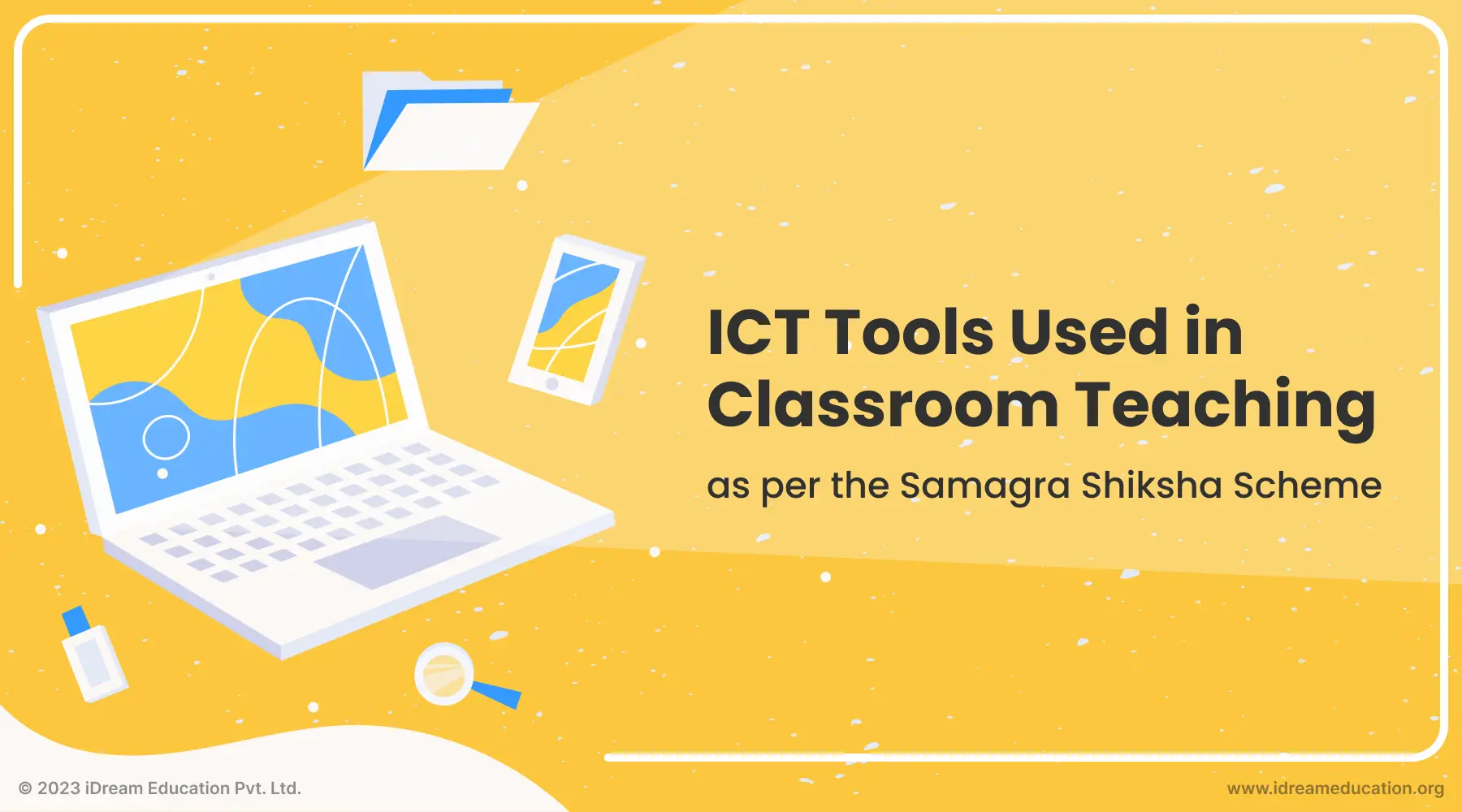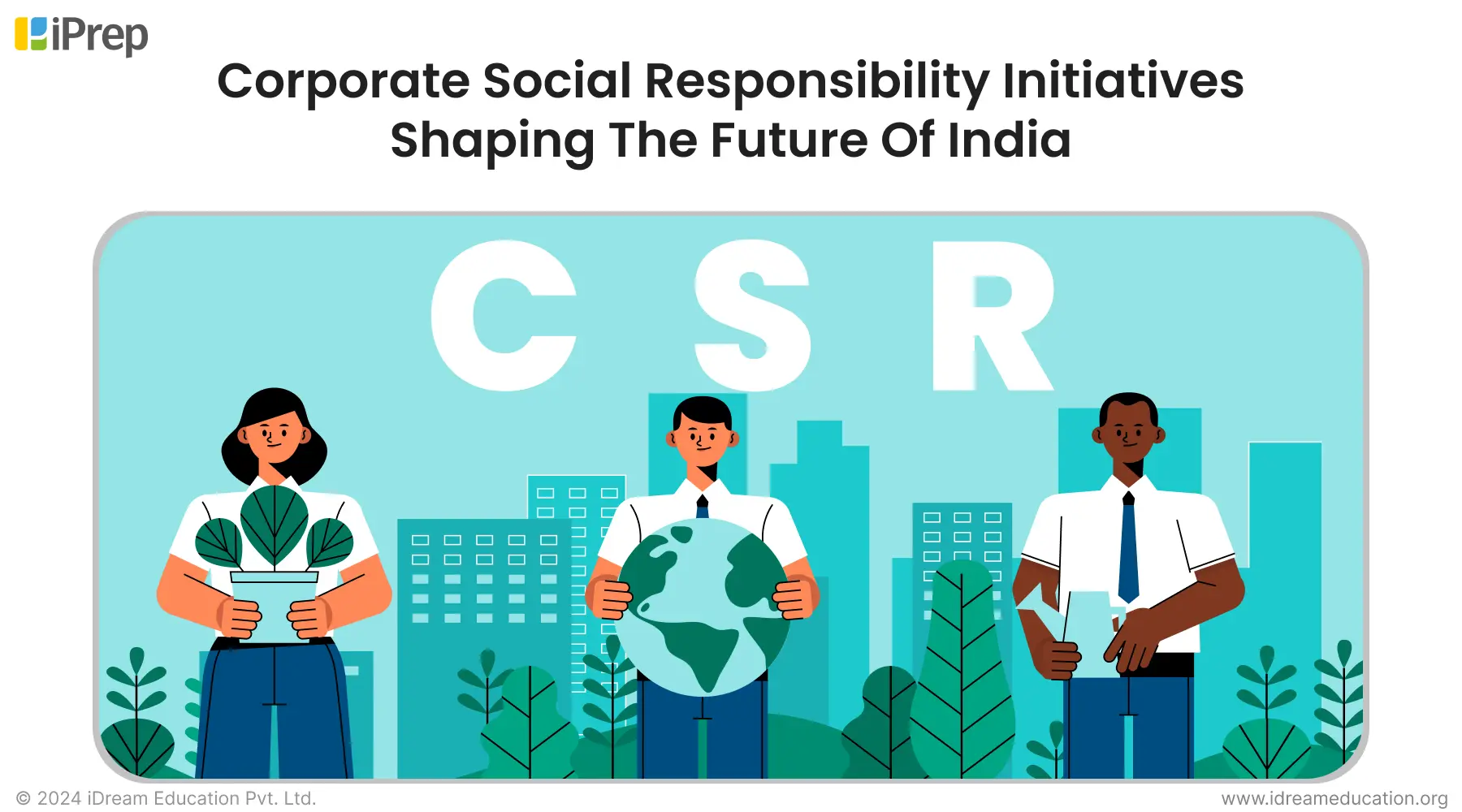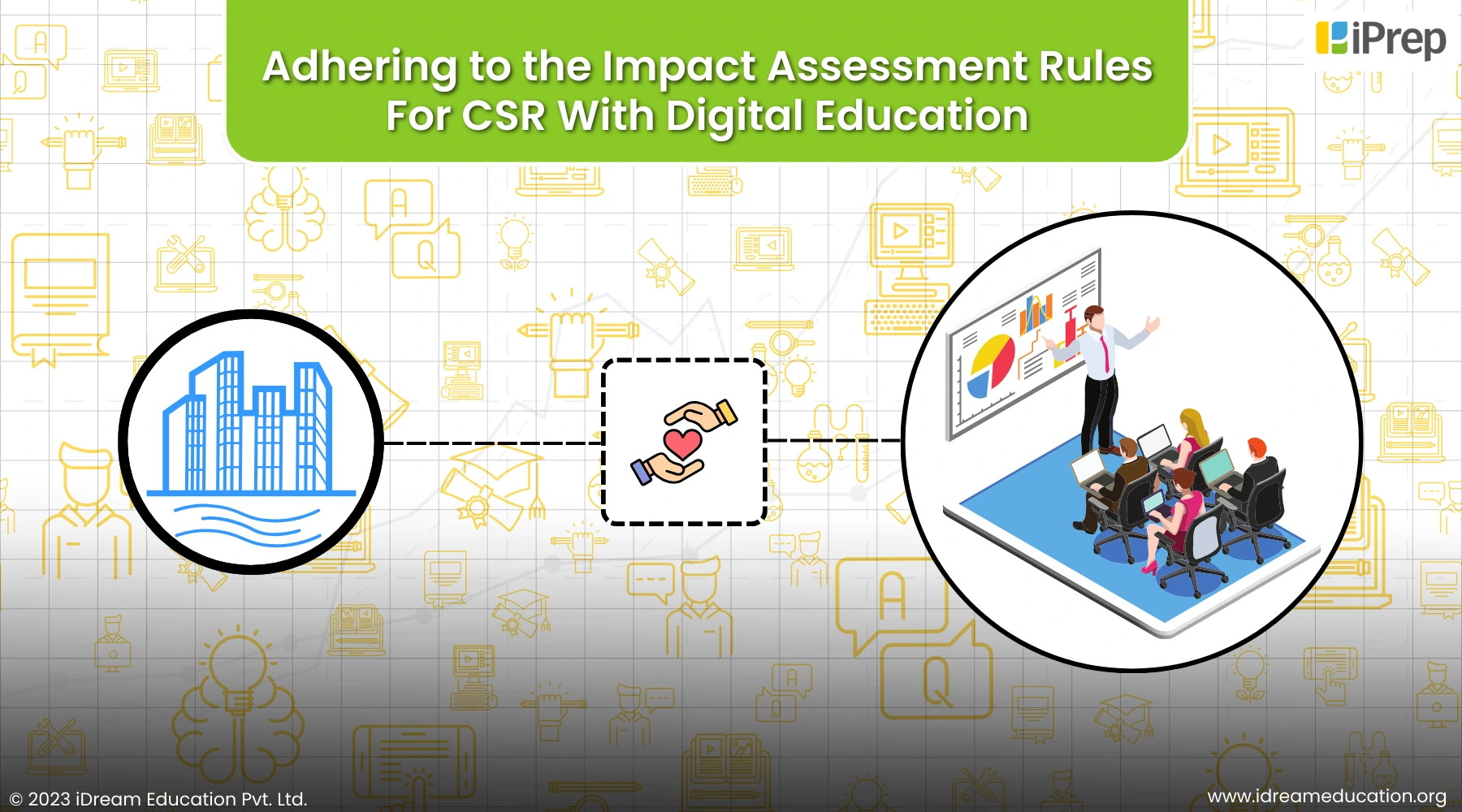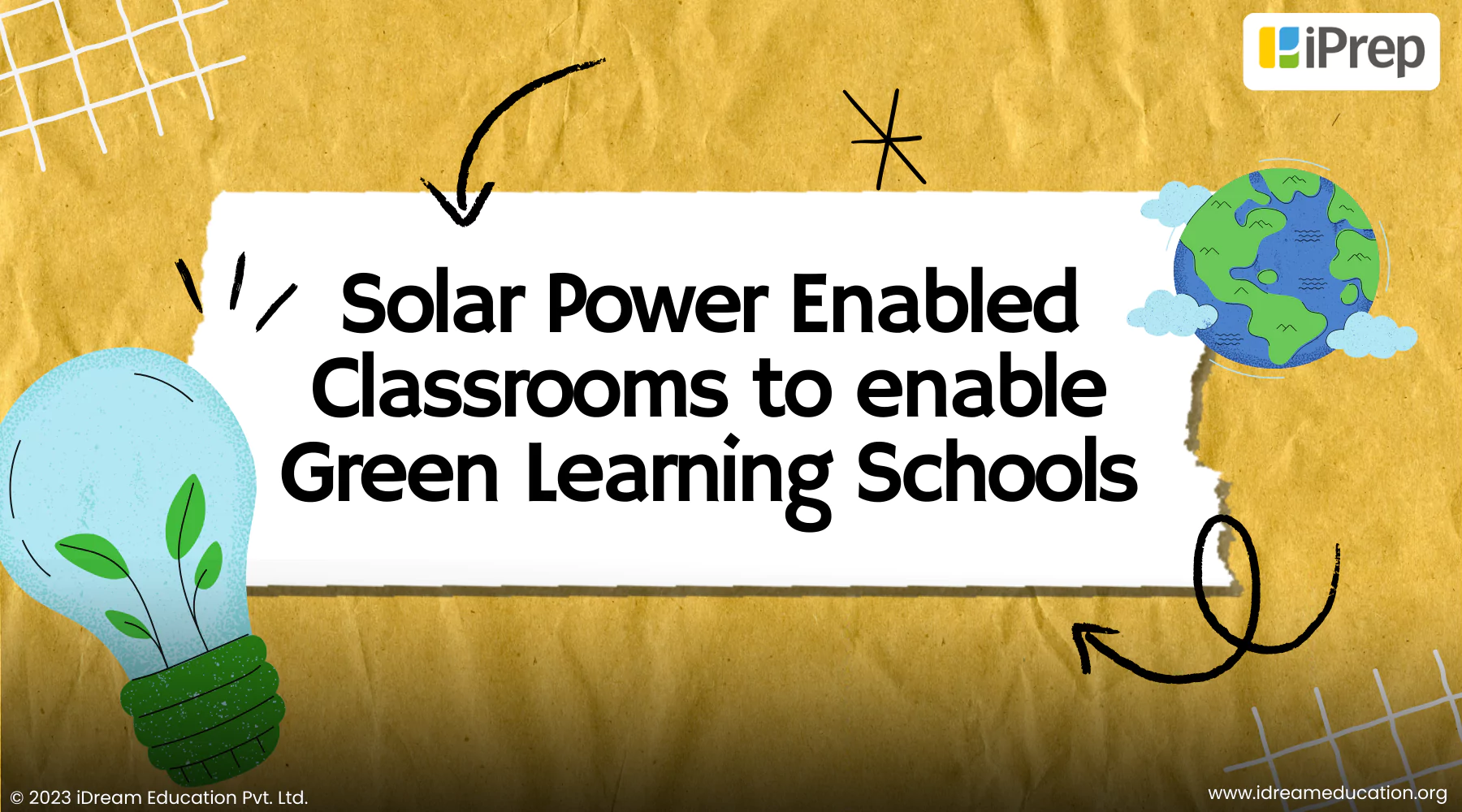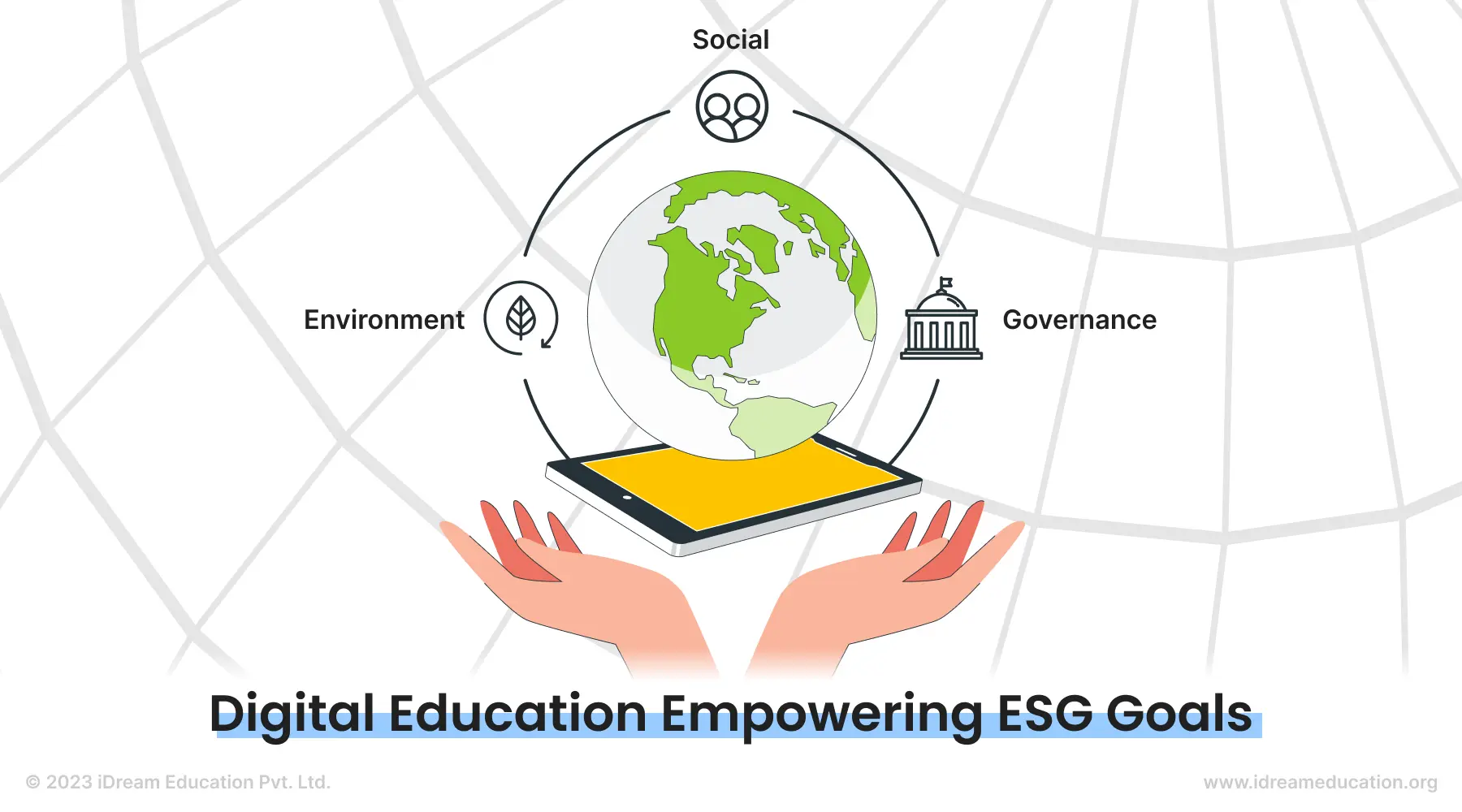What are the key considerations while choosing the right Ed-Tech partner for K-12 CSR Initiatives?
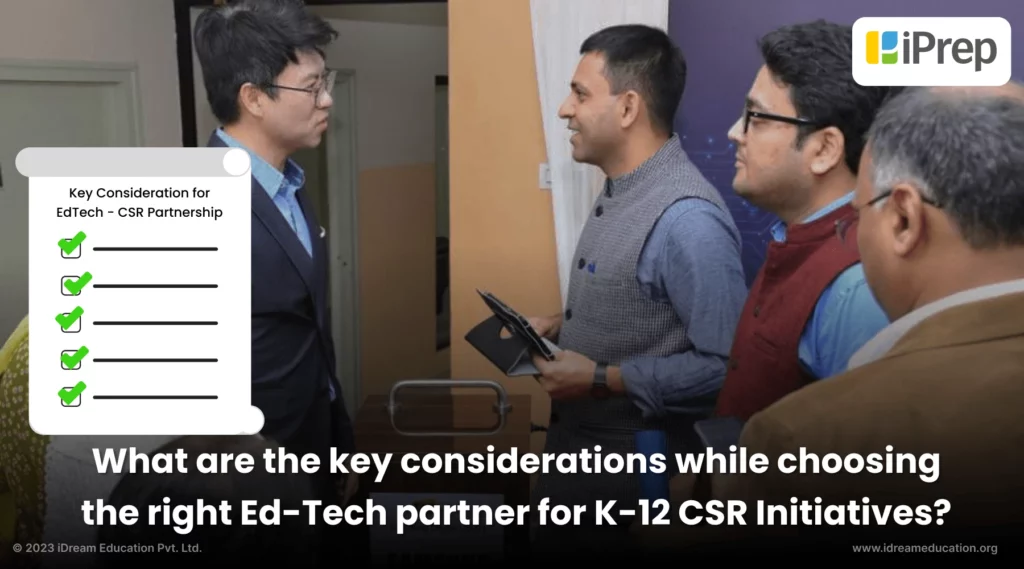
In the recent past, some major high-potential EdTech Partners in the EdTech Sector sector saw major investments and spending by governments, schools, universities, students, and professionals globally. The government of India is rejuvenating education by imagining and shaping E-learning with ICT-based CSR initiatives. PM E Vidya program, DIKSHA, PM SHRI Yojana, and SWAYAM Prabha initiatives by the Government of India are meant to unify digital and online education with educational programs for a wider reach to remote areas with just a click of the mouse.
Educational initiatives that can be undertaken as part of CSR Initiatives include building schools, supporting teacher training programs, providing scholarships and learning materials, and supporting digital education initiatives. The New Companies Act, amended in December 2012 mandates that corporations with a turnover of 1000 Cr/ Profit after Tax (PAT) of 5 Cr/ or net worth of 500 Cr spend 2% of their average net profits of the last three financial years towards CSR Initiatives.
The year 2021 data suggests that Maharashtra had the highest CSR spend of Rs.1669.7 Crore in the education sector. This was followed by Karnataka and Gujarat at 545 and 511 Crores respectively. The ed-tech projects together contributed to around INR 132.59 Cr CSR Initiatives Spent.
If you are a government agency or a large organization pondering investing in K-12 education, the thought of technology-laced education is bound to cross your mind. There is indeed a strong case for investing your CSR Initiatives budget in ed tech for various reasons. Let’s discuss them one by one in our next section.
Reasons to Invest in EdTech for Your CSR Initiatives
Improved Accessibility
CSR Initiatives that have invested in EdTech solutions such as Android-based smart classes and personalized and adaptive learning, have evidently addressed the issue of accessibility, scalability, and impact of teaching. Teaching has traditionally followed a one-to-many- approach at the cost of individual attention to students. However, Smart ICT labs have introduced the possibility of having multicategory content on a single device. This enables teachers to use various teaching materials to gauge student engagement. Further, Digital Library has introduced the possibility of very easy-to-use and maintained ICT Labs in schools. These labs can be set up in any physical space, eliminating the need for specific space, wiring, or furniture.
Breaking Barriers to Universal Learning
Improved accessibility with the help of EdTech-enabled CSR Initiatives has led to remote schools breaking barriers to universal learning. For example, the iPrep digital library was set up in 292 Government Schools in 16 districts of Karnataka. In the Digital Library setup more than 5000 tablets were given, preloaded with enjoyable digital content on SD cards. The content was aligned with the Karnataka Board in English and Kannada Medium for classes 1st to 10.
Increased Teaching Efficiency
CSR Initiatives that invested in EdTech Solutions such as Smart classes have increased teaching efficiency and effectiveness through the simplification of administrative tasks including lesson planning and student progress tracking to focus on providing personalized learning to cater to different student needs and learning styles.
A smart class solution was introduced in a remote district of Meghalaya. However, it was found that students have a historical learning gap and a mere smart class installation by itself will not deliver the expected results. That drove us to design a bridge course to fill the learning gaps. On a smart TV, this course enables teachers to navigate through modules from different grades to match the student’s level of knowledge and for in-depth teaching of a concept.
Data-Driven Learning Outcomes
The integrated reporting system in EdTech Solutions such as Smart Classes ensures data-driven learning outcomes. Offline usage reports are stored on the device and synced automatically to a cloud-based reporting dashboard. This enables the monitoring of the performance of teachers and students for better engagement and improved school performance.
This solves one of the major challenges of the corporations that invest in CSR which revolves around the inability to showcase the effectiveness of the funds they invested in their CSR Initiatives.
Altogether, the above factors lead to a better impact on education through personalization and improved teaching efficiency.
Now that you have made up your mind to spend your valuable money, why not be contemporary and embrace smart education?
The catch is that not all government functionaries as well as large business owners have an understanding of technology. Most decision-makers would be in a conundrum about which ed-tech agency can truly be a partner in their vision.
In this article, we will help such decision makers to make prudent choices about picking up the right Ed tech partner to do justice to their vision and investment. Here are the 7 key considerations while choosing the right partner for your Ed tech initiative:
7 key considerations
- Is your goal clear? What are you seeking from Ed Tech?
- Is your Edtech partner aligned with your mission and vision?
- Evaluate the operational capabilities of the agency.
- Personalized service & customization.
- Technology is no good without the right content.
- Ensuring the privacy of your data.
- Is the technology integrated with your Learning Management System ( LMS)?
Is your goal clear? What are you seeking from Ed Tech?
Sit back and think about what you hope to achieve by enabling your CSR initiatives with EdTech. Is it to improve student outcomes or to enhance the efficiency of the classrooms in schools around your corporate presence? Do you wish to make these schools more innovative or improve student engagement?
Once the goal is clear, the next thing is to shortlist companies that specialize in that specific area. For example, if you’re interested in increasing student engagement, it will be appropriate for you to select an EdTech company that specializes in engaging learning content or gamification. Or else your priority might be improving the efficiency of the teachers etc.
Is your Edtech partner aligned with your mission and vision?
There is a wide difference in ideologies between academics and the startup world. While startups focus more on action, results, deliverables, and iterations, this is completely different in the academic world. Altogether, Education is all about discussing, debating, and learning.
This difference in basic ideologies leads to the lack of a smooth exchange of ideas, which hampers practical implementation.
An Ed tech partner for your CSR Initiatives must be eager to know your success stories and they must show interest in what you have already learned based on which they should suggest what value the technology can bring to your institute. It is even better if the Ed-tech company has few teachers and teaching professionals on their team. The iDream Education customized its iPrep Digital Class solution for the students of Meghalaya over many months after evaluating the response of students and teachers to the Smart Classes which resulted in introducing a bridge course.
The success of the partnership is determined by whether your partner is open to exploring the education industry in the shoes of an educator.
Evaluate the operational capabilities of the agency.
Although tech skills are vitally important for the development of any hardware or software application, relevant teaching knowledge and industry expertise are just as essential for the development of any applications that have to do with learning.
In addition to investigating the functionality and reputation of the ed-tech products you are buying and planning your CSR Initiatives with, research the company and its ownership. Also, review your contract to understand cancellation penalties and the cost of switching providers.
Once you have a list of potential EdTech partners, check the blog posts and the case studies on their website to know more about their work. You can also approach their previous clients to know their experience with the company.
Personalized service & customization.
Find companies that are genuinely interested in your vision. They must engage with your faculty and staff, and incorporate their feedback. They should treat them as partners in meeting your Ed tech goals.
Does your ed-tech provider treat users with respect and respond promptly to problems and inquiries after the sale is done?
Therefore, schools must continuously evaluate whether the solutions are meeting their long-term needs. Also, the Ed-tech company should be responsive enough to the changing needs.
Technology is no good without the right content.
Content is everywhere and easily available all over the World Wide Web. The challenge therefore is to find knowledge that is authentic and has depth. Therefore, your ed tech Partner should be capable of aggregating knowledge from all over the world. They should be well-equipped with a vetting process.
Ensuring the privacy of your data.
To prevent regulatory consequences, institutions need to have a clear understanding with their ed-tech partners about how student and employee data will be used by the company. Therefore, the contract between the two must have a clause on data privacy.
Is the technology integrated with your Learning Management System ( LMS)?
Every school has a Learning Management System (LMS) and Student Information System (SIS) and an edtech product must integrate with existing LMS and SIS systems. A lack of integration between the two can create confusion. As a result, the institution will not be able to reap the benefit of analytics for improving student performance through data-driven learning outcomes and classroom efficiency.
To conclude, an Ed-tech partnership is a relationship that should last a long time. Further, for the benefits to mature, It requires a prudent approach to select a partner who cares for your vision and can nurture your goals.
We welcome our readers to share their experiences, opinions, or questions about Ed-tech for K12 by commenting in the section below. For any sales queries and to contact our product experts, drop an email at share@idreameducation.org


